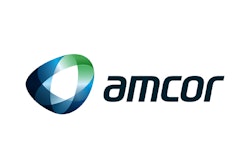
This content was written and submitted by the supplier. It has only been modified to comply with this publication’s space and style.
Amcor–a developer and producer of responsible packaging for pharmaceutical, medical, home and personal-care, and other products–in partnership with thirty-five leading companies in the consumer goods industry, announces measures to significantly reduce plastic waste. Amcor and its partners in this coalition–which have a collective turnover of 1 trillion euros–will be enforcing two new design rules to deliver packaging that is easier and more cost-effective to recycle.
The first design rule is expected to improve the economic viability of PET bottle recycling by removing coloring pigments and labelling that impact recycling rates. The second design rule will remove materials that are problematic for recyclers from all forms of plastic packaging. By implementing these rules, the companies expect recycling will become easier, cheaper, more efficient, and will scale faster–which would result in less waste leaking into the environment.
The design principles also align with Amcor’s objectives to develop more sustainable packaging and to collaborate to increase recycling rates worldwide. These rules are already being applied to Amcor’s PET bottles and rigid packaging systems.
This year, Amcor reported that $7.71bn of its revenue is now generated from products that are designed to be recyclable–significant progress towards its pledge that all of its packaging will be recyclable or reusable by 2025.
Steve Alexander, president and CEO of the Association of Plastics Recyclers (APR) says, “APR is pleased these design rules comply with the APR Design for Plastics Recyclability for PET Recyclability. These guidelines help to create industry standards to provide sustainability solutions for plastic packaging, and will serve to enhance the value of PET bottle recycling. Recycling serves as the base for packaging to be part of the circular economy, and these guidelines help to close the loop when it comes to our waste management system.”
Amcor also reports it is endorsing the Consumer Goods Forum’s recent position paper on Extended Producer Responsibility (EPR) which calls on governments to work with industry to ensure that EPR schemes meet a set of guiding principles for fairness, effectiveness, and sustainability. The company believes this tool may have value in tackling waste leakage.


























